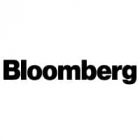The EU has set new, ambitious targets for their critical minerals and net-zero industrial strategies.
By 2030, the bloc’s strategic raw material supply chain must now meet:
- at least 10% of the EU’s annual consumption for extraction
- at least 40% of the EU’s annual consumption for processing
- at least 15% of the EU’s annual consumption for recycling
- not more than 65% of the Union’s annual consumption of each strategic raw material at any relevant stage of processing from a single third country
“This Act will bring us closer to our climate ambitions. It will significantly improve the refining, processing and recycling of critical raw materials here in Europe. Raw materials are vital for manufacturing key technologies for our twin transition”
— Ursula von der Leyen, President of the European Commission
The Net-Zero Industry Act sets targets for:
- of increasing at least 40% of the EU’s strategic net-zero technologies manufacturing capacity by 2030. This includes streamlining of permit grants for solar power and fuel cells
- to reach an annual 50Mt injection capacity in strategic CO2 storage sites in the EU by 2030, with proportional contributions from EU oil and gas producers
- set up a European Hydrogen Bank
- nuclear power has been “partially” included with a reference to Small Modular Reactors (SMRs) and advanced reactors under its Net Zero Industry Act (NZIA)
“This will accelerate the progress towards the EU’s 2030 climate and energy targets and the transition to climate neutrality, while boosting the competitiveness of EU industry, creating quality jobs, and supporting the EU’s efforts to become energy independent”
— Net-Zero Industry Act, March 2023
For background to these developments:














